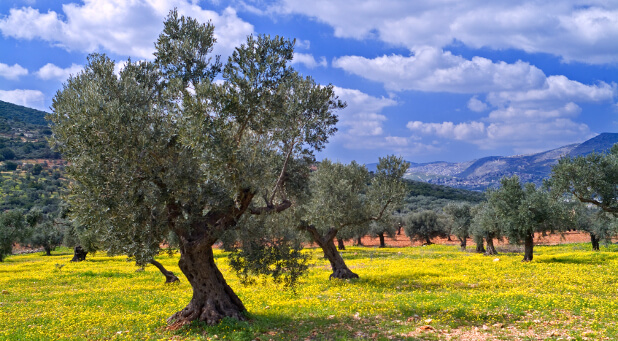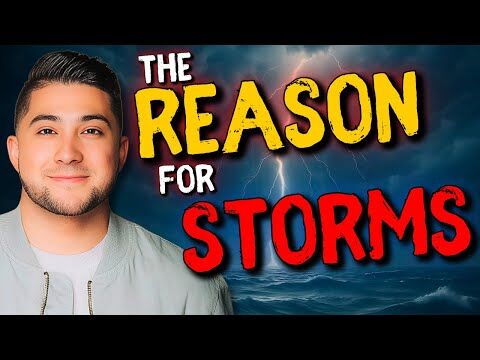Sukkot, the Feast of Tabernacles, ends in Israel this week. Living in Israel, celebrating the biblically ordained festivals, ties us deeply to the Land in a way that’s unique and special.
Sukkot officially marks the transition from the hot and dry summer months to the cold and rainy fall and winter months. Since Israel is an agrarian society and has made the desert bloom in the modern era as no country ever has, when Sukkot ends, our prayers change from asking God to provide dew to nourish the Land to asking Him to bring the rain to fill our lakes and aquifers.
My connection to, and awareness of, the need for the Land to be blessed—literally—with water running deep, makes my prayers for rain very meaningful, and even emotional. I look forward to this season with great anticipation.
No matter where we are, when Jews pray for rain, we pray for rain (or dew) in Israel. We understand abundant rain is a blessing from God, and that our actions play a direct role in His bestowing rain in its season. So when we begin praying for rain, I pause to reflect on the season ahead, just following the season in which we pray fervently to have a good year based on our merits in the previous one. It’s awesome to think of how my prayers and actions go from impacting me individually during Rosh Hashanah and Yom Kippur, to impacting Israel globally.
I pray that God hears my prayers and that my actions will cause the rain to fall. I wonder, will the Sea of Galilee be replenished, and will our aquifers be full enough to get us through the dry months ahead?
God gave us a Land that is deeply connected to the abundance of rain. Being aware of that makes us humble and personally accountable, not just in our actions and prayers to bring rain, but to be sure not to waste the water we are given. I am also careful not to waste water throughout the year.
Another liquid resource with deep biblical roots is wine. In Judaism, wine has always been part of many rituals. Today, we have grown from an era of storing wine in clay vessels to becoming one of the leading wine-producing countries of the world, with some Israeli wines winning international awards. And they are kosher too.
Of course, just like any crop, wine is dependent on the vine receiving the right amount of rain at the right time. The grape vine in my yard does more than just yield fruit. It connects us to the Land and is the fulfillment of biblical prophecy.
Olive oil is another agricultural product used in various rituals and deeply connected to the Land and the Book. Olive trees thrive here because they don’t require lots of water. The trees, the fruit and the oil are deeply symbolic and religiously relevant. I love using olive oil to light my Chanukah menorah every year, rather than more common brightly colored candles. It’s another way of connecting me to the Land.
When we talk about oil outside of the biblical context, we’re usually talking about gasoline, and our thoughts turn to the price per barrel and the cost to make our car run. There’s a joke that if Moses had only turned the other direction, Israel would be sitting on billions of barrels of this oil, and yet we are rightly in awe of our achievements despite not having oil until recently.
Israel was believed to have no significant oil reserves for decades, but the past several years have shown that God bestowed on us no small amount of shale oil and natural gas that have the ability to make Israel an energy exporter and no longer reliant on the international market. Even if not prophetic, like the fruit of the olive tree and the fruit of the vine, this is a blessing that’s no less significant.
The last of the precious liquid resources which Israel needs, and which also has deep biblical roots, is blood. Blood is the only one, however, that does not rely on the blessings of God. To sustain Israel’s blood supply requires a generous and selfless human act. Since blood has a limited shelf life, it requires a constant flow of people taking time to donate.
Over the past several years we have seen a new reality that’s emerged in the Land to help sustain this; the goodwill and generosity of thousands of Americans participating personally, either by going out of their way to donate blood while in Israel, or joining and partnering with Heart to Heart to provide the extra resources that Israel needs to maintain its blood supply as one that’s always safe, abundant and uninterrupted. It may not be God Himself filling the blood bank as He fills the aquifers, but Israel’s blood supply is reliant on people with a heart for Israel, who understand that Israel is biblically ordained and that saving a life in Israel carries with it an extra level of responsibility.
Like my own personal prayer for rain, and being sure not to waste water, Israel’s blood supply is very personal. I donate blood as often as possible. I have instilled that value in my children, and am privileged to have brought thousands of others to donate blood here as well. I pray that Heart to Heart will see participation grow from tens to hundreds of thousands, and then millions, because maintaining our blood supply requires a personal action and cannot be done on prayer alone.
When the Temple stood in Jerusalem, people who came to worship during Sukkot also brought offerings. While the Temple is no longer here, we still see people from nations across the world gathering to celebrate in Jerusalem. It’s an awesome sight to see offerings being brought from near and far to support Heart to Heart and bless Israel.
When you come to Israel, please look me up. I’ll be happy to chat about all this and more, over a glass of a famous Israeli cabernet, dipping fresh bread in some of Israel’s most flavorful olive oil, and make an outing to donate blood—perhaps not on the same day. In the meantime, please join Heart to Heart with your own offering and sponsor a pint of blood for $100 that can save three lives, or sponsor one of the components of blood—red cells for $60, plasma for $40, and platelets for $25.
Jonathan Feldstein was born and educated in the U.S. and immigrated to Israel in 2004. He is married and the father of six. Throughout his life and career, he has been blessed by the calling to fellowship with Christian supporters of Israel and shares experiences of living as an Orthodox Jew in Israel. He writes a regular column for Charisma’s Standing With Israel. You can contact Jonathan at [email protected].































































